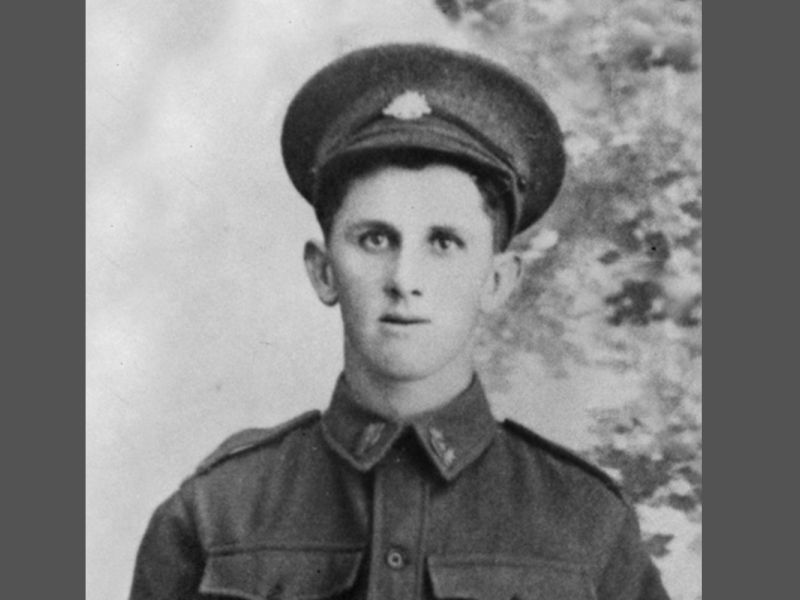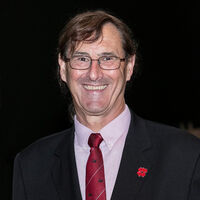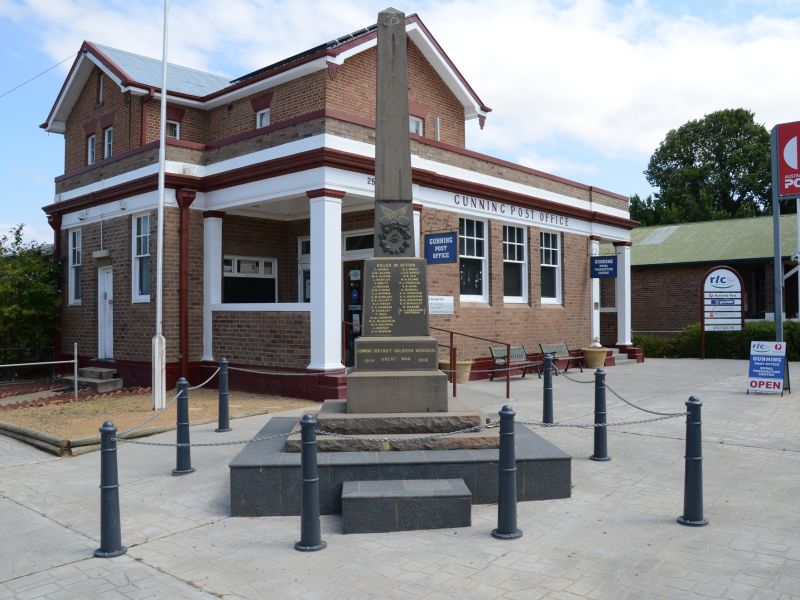Their Soldier Son So Brave
The face looking out from the photograph is young, as so many were. The uniform does not yet sport the single chevron of the Lance Corporal that he will become but there’s no doubt that the young man is a soldier. His name is William Edward Thomas Alchin, and he is one of those from the Gunning district that answered their country’s call.
William was born in August 1893 at Gunning, NSW into a farming family. The property was named “Rockdale”. It was therefore natural that, after leaving school, William too would become a grazier. With the coming of war in August 1914 men from the city and from rural communities enlisted to play their part in what was often portrayed as a great adventure. Many young men would have been torn between serving their country and the need to support family and the rural industry. However, as the casualties from the Gallipoli campaign mounted the Army had to increase its recruiting campaign to offset the losses. On 01 November 1915 the young grazier became 5326 Private William Alchin, Australian Imperial Force.
After training in Sydney William was given final leave before he had to join his fellow reinforcements for embarkation for overseas service. During his leave William was treated to a presentation and social evening in his honour. Many attended the event, with local luminaries extolling his virtues and wishing him well with the presentation of a wristlet watch and the singing of “For He’s a Jolly Good Fellow”. The function carried on into the early morning.
Assigned to the 53rd Australian Infantry Battalion, William embarked from Sydney, aboard the transport ship Ceramic. On arrival in Egypt, he was admitted to hospital in what would become the first of a series of hospital admissions during his service. After his first bout of illness William was transferred to the Western Front in France where he rejoined his unit in late July 1916, fortunately after the horrific battle at Fromelles, during which the 53rd Battalion suffered grievously.
In late September he was again hospitalised, now with pleurisy, but it was a later diagnosis of pleurodynia that saw him eventually transferred to hospital in England. It wasn’t until March 1917 that William was fit enough to be returned to the Western Front. Promoted to Lance Corporal, he was transferred to the 61st Battalion which was then sent to France to reinforce the 53rd Battalion. In early October 1917 he rejoined the 53rd Battalion in the field.
Further illness and periods in hospital followed however February 1918 saw him back with his unit, now in the Ypres area of the Front. Although he’d avoided the Battalion’s major actions of Fromelles and Polygon Wood, William was killed in action at a small village called Wytschaete on 14 March 1918. He was buried in Somer Farm Cemetery. His parents had inscribed on his headstone “Sadly his father and mother are thinking of their soldier son so brave”.
Lance Corporal William Alchin was 24 years old.
- Australian War Memorial https://www.awm.gov.au/collection/C1115273

 Henry C Moulds
Henry C Moulds